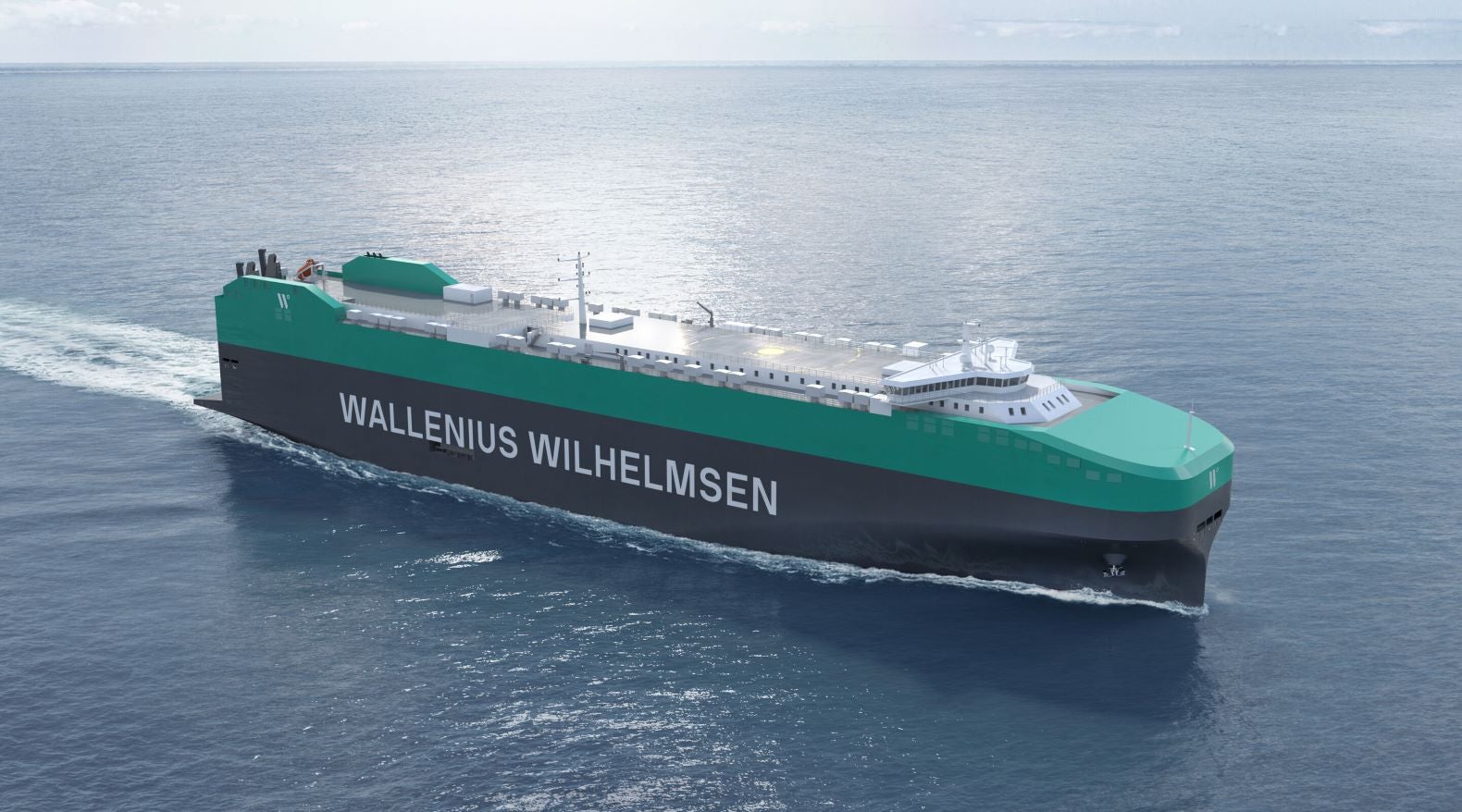
Swedish-Norwegian shipping logistics corporation Wallenius Wilhelmsen (WW) has signed a contract with a Chinese shipbuilder to produce four “next generation” vessels to run on methanol or other “alternative fuels”.
The contract with Jinling Shipyard (Jiangsu) is for four initial vessels, with a further eight as an option. The first deliveries will take place in the first half of 2026. The company said the newbuild ships form a key pillar of its ambitious net zero by 2027 plan.
The four vessels will be “methanol-capable and ammonia-ready” and will each have a capacity of 9,350 CEU.
WW CEO Lasse Kristoffersen said: “There is an urgent need for our industry to transform over the next couple of years. As a company, we are determined to shape this industry and lead the way to capitalise effectively on changing circumstances as we grow with customers and partners sharing our journey.”
This ambition to lead the maritime industry in its mission to achieve net zero is the thinking behind the new craft’s name: The Shaper Class.
“We want to be our customer’s first choice in shipping and we want to deliver an end-to-end net zero emissions solution by 2027. Our new vessels will enable us to get closer to these goals. At the same time, we are the world’s largest RoRo vessel operator and will maintain a fleet of 125-135 vessels,” the company added in a statement.
The process began nearly two years before the order was confirmed, according to WW’s newbuilds and conversions manager Lars Ekren. WW’s team has worked with designers Delta Marin and external safety and operation experts.
“Energy efficiency and reducing GHG emissions is a top priority and a lot of effort has been put into ensuring the new vessels will significantly contribute to meeting our emission reduction targets,” Ekren said.
Alternative fuels, including biofuels and methanol, are seen as key to the decarbonisation of the maritime sector and WW’s executives see it no differently.
“We are already partnering with our customers on reducing emissions through biofuel and with the new vessels, we can accelerate this towards net zero. This requires new and more expensive fuels but both we and our customers are committed to secure this as soon as it can be made available,” explained Xavier Leroi, EVP and COO of shipping services.


